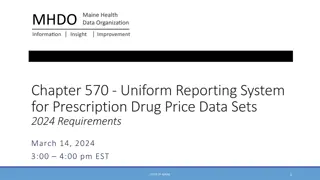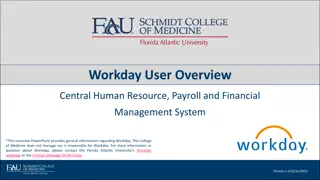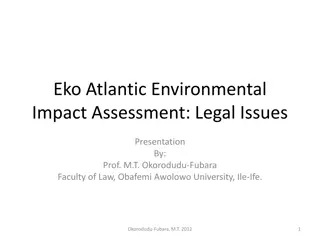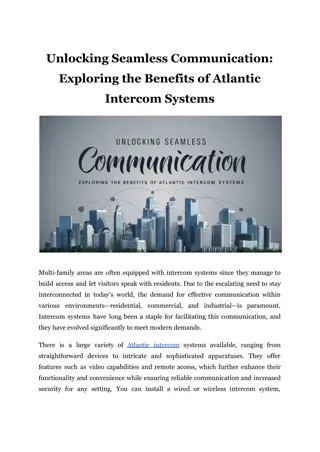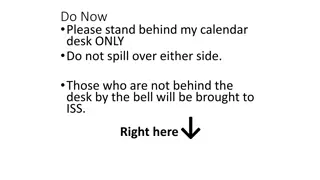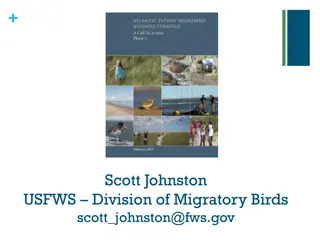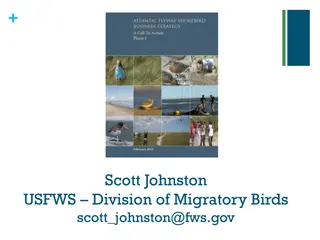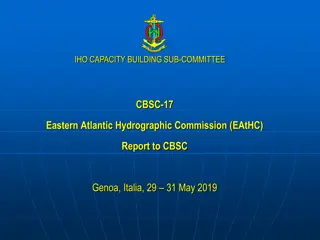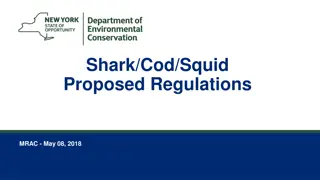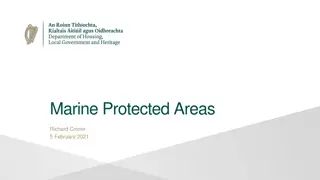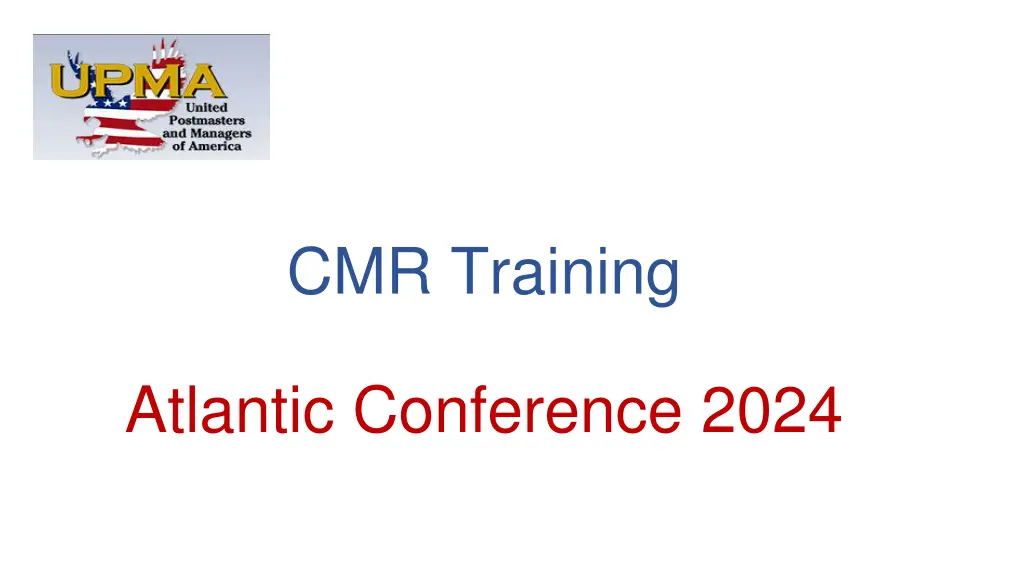
Navigating Investigative Interviews and Member Representation
Learn how to effectively navigate investigative interviews and provide member representation in professional settings. Discover key roles, responsibilities, and best practices for a successful process.
Download Presentation

Please find below an Image/Link to download the presentation.
The content on the website is provided AS IS for your information and personal use only. It may not be sold, licensed, or shared on other websites without obtaining consent from the author. If you encounter any issues during the download, it is possible that the publisher has removed the file from their server.
You are allowed to download the files provided on this website for personal or commercial use, subject to the condition that they are used lawfully. All files are the property of their respective owners.
The content on the website is provided AS IS for your information and personal use only. It may not be sold, licensed, or shared on other websites without obtaining consent from the author.
E N D
Presentation Transcript
CMR Training Atlantic Conference 2024
Member Representative Checklist Determine if the client is a UPMA member. Have the Member sign the Representation Authorization Form. Supply Member with the UPMA Purpose Statement and UPMA Adverse Action Legal Defense Plan (AALDP). Fill out the Member Contact sheet. Discuss the Investigative Interview (PDI) process with Member. Use this presentation as a guideline on how to prepare yourself and the Member for the Investigative Interview. If you think this case may result in an Adverse Action as defined in ELM 651.71 or 652.2 please contact a National Member Representative.
Investigative Interview / PDI Investigative Interview or PDI (Pre- Disciplinary Interview) is an interview with the discipling manager. The Interview goal is to answer questions in reference to allegations or performance issues.
Investigative Interview / PDI EAS allowed a representative of choice Take Notes Review Questions; Determine Charges or Violation EAS answers should only be short, precise, and do not elaborate EAS No Forum for Defense / Fact Finding LESS IS MORE! Ask to meet alone with Manager following II / PDI
Roles during II / PDI Representative: The role of the Member Representative is to assist the Member to understand the procedures and guide them through the process. Supporting the Member is a very integral part of a successful Investigative Interview. If possible meet with the Member 15 minutes prior to the interview. If the Member has previous discipline ask for a copy of their discipline and a copy of their E-OPF.
Roles during II / PDI Member: The role of the Member is to be truthful in answering questions. Remain Calm and relaxed. Use the Investigative Interview to tell their side of the issue or to improve performance and correct deficiencies if needed.
Investigative Interview / PDI Member or Member Representative should ask disciplining manager what the interview is about. Ask for copies of the questions. Not always granted! Member should answer questions to the best of his/her knowledge. Do not provide more information than is requested. Member answers should be short and precise but not evasive.
Investigative Interview / PDI The Interview may be done in person or over the phone. Over the phone, have Member Representative and Member together during the interview or on another line. In person, have Member Representative attend with the Member. Advise Member not to be interviewed alone or answer questions on the phone without a witness. Inform Member to not let disciplining manage talk him/her into attending the meeting alone. I.E.: I just want to ask a few questions.
Investigative Interview / PDI . Request a break if you need to talk with member in reference to how he/she is answering the questions. The Member should ask for a break if he/she does not understand the questions. Member Representative or Member can ask questions at the Investigative Interview. If the Member knows they have done something wrong and might be receiving some type of discipline other than a removal or downgrade, advise Member it is best to be humble and remorseful when answering the questions.
Investigative Interview / PDI If the Manager is being hostile towards the member, stop the Interview. Once the interview has been completed, if appropriate ask what type of discipline he/she is considering. You may be able to use this time to discuss a settlement for the member. Use the questions to prepare for your negotiation for a settlement for the Member.
Reaching a settlement Creating settlements when the manager doesn t want to reduce discipline. Access situation from both sides, Manager and MPOO Be prepared to address disciplinary actions/issues Have a goal set or be fully prepared to settle the case. Take good notes from phone conversations. Follow-up email summarizing phone conversation
PIP (Performance Improvement Plan) Alternative Means to correct repeated issues. Produces List of what improvement is needed Ask PM/Manager for Input. PM/Manager can provide obstacles in achieving goals. MPOO/Manager shows support / Offers Training. Set time frame to achieve goals. If PM/Manager cannot meet goals Notify MPOO/Manager in writing Give valid reasons. At end of time frame, if achieved, PM/Manager should be cleared. Failed goals, MPOO/Manager may allot more time or discipline may follow. Manager/PM should always have a representative with him/her. The KEY in the PIP Process is communication.
Mediation Alternate Dispute Resolution Redress EEO Mediation ELM 650 ADR is voluntary Set rules of evidence are presented
Mediation Mediator Neutral Mediator does not offer solutions Mediation is confidential Main Goal Get a settlement Each Party explains/details story
Mediation Mediator clarify/identify issues Mediator can identify options and discuss effect for possible solutions Any documents used may not be siphoned for hearing/trial Mediator and parties will not testify about mediation
Most Common EAS Errors Settling grievances over settlement authority Misuse of Postal Funds Falsified records/TimeCards/TACS Untimely Audit of Credits SOX Irregularities-Retail, Credit Card, eBuy concerns
Most Common EAS Errors Reporting Irregularities, delayed/undelivered mail Failure to Dispatch mail Misuse of Computer (Excessive Personal use, web-surfing, improper email use, etc.) Alcohol/Drug Abuse Sexual Harassment Sending MPOO inappropriate email
Adverse Action 651.71 Definition Adverse actions are defined as discharges, suspensions of more than 14 days, furloughs of 30 days or less, and/or reduction in grade or pay. Letter in Lieu of 7 day and 14 day suspensions. Reduction in grade Removals Emergency Placements in excess of 14 days Letter of Warning are NOT Adverse Actions 651.72 Policy Adverse action may be taken against an employee (a) because lesser measures have not resulted in the correction of deficiencies in behavior or performance, (b) because of the gravity of the offense, or (c) for non- disciplinary reasons, such as the correction of a position misranking.
Emergency Placement 651.4 Emergency Placement in Off-Duty Status An employee may be placed in an off-duty non pay status immediately but remains on the rolls when he or she (a) exhibits characteristics of impairment due to alcohol, drugs or other intoxicant, (b) fails to observe safety rules, (c) fails to obey a direct order, (d) provides reason to be deemed potentially injurious to self or others, or (e) disrupts day- to-day postal operations in any other way. Placement in an off-duty non pay status is confirmed in writing, stating the reasons and advising the employee that the action is appealable. The employee should be returned to duty after the cause for non pay status ceases unless the individual circumstance warrant otherwise. Use of the emergency procedures does not preclude disciplinary action based on the same conduct.
Consultative Process Consultative Process is one of the fastest ways to have, District actions at the local level, resolved when not complying with Headquarters directions. They are resolved by passing the MPOO if no satisfactory answers have been given for additional or detrimental directions being levied to District Postmasters. This is not and Adverse Action Committee Process.
Reasons for OIG Visits OIG Team assignments: Random District Request Flagged Items Whistleblower Employee Serious Infractions: Disregard of Postal Regulations Revenue losses due to Inattention False entries on Time Cards, TACS Reoccurring deficiencies of a Serious Nature Disciplinary action will follow Criminal
OIG Interviews Interview employees under oath Review agency documents Subpoena individuals to provide the OIG with documents Place employees under arrest; and Inform the Attorney General and local United States Attorney of any potential criminal violations.
OIG Interviews The OIG does not have the legal authority to: a. Physically threaten or intimidate employees; or b. Order employees to appear for interviews or discipline employees if they refuse to appear or cooperate.
OI IG Interviews Who are, Garrity, Kalkines and Miranda? What do they have to do with OIG Interviews? Why do you need to know?
OIG Interviews GARRITY WARNING You are being asked to provide information as part of an internal and/or administrative investigation. This is a voluntary interview and you do not have to answer questions if your answers would tend to implicate you in a crime. No disciplinary action will be taken against you solely for refusing to answer questions. However, the evidentiary value of your silence may be considered in administrative proceedings as part of the facts surrounding your case. Any statement you do choose to provide may be used as evidence in criminal and/or administrative proceedings.
OIG Interviews KALKINES WARNING You are being questioned as part of an internal and/or administrative investigation. You will be asked a number of specific questions concerning your official duties, and you must answer these questions to the best of your ability. Failure to answer completely and truthfully may result in disciplinary action, including dismissal. Your answers and any information derived from them may be used against you in administrative proceedings. However, neither your answers nor any information derived from them may be used against you in criminal proceedings, except if you knowingly and willfully make false statements.
OIG Interviews Miranda Rights You have the right to remain silent. Anything you say can be used against you in court. You have the right to talk to a lawyer for advice before we ask you any questions. You have the right to have a lawyer with you during questioning. If you cannot afford a lawyer, one will be appointed for you before any questioning if you wish. If you decide to answer questions now without a lawyer present, you have the right to stop answering at any time.
Results of OIG Investigative Interview OIG or Inspectors will Submit a ROI or MOI Level (Report of Investigation, Memorandum of Interview) to Next Higher USPS Almost always an investigative interview with MPOO will be given before Discipline
Questions and Answers
What should I do if I am scheduled for an Investigative Interview? 1. Immediately call your CMR or Chapter President. 2. DO NOT PARTICIPATE OR answer any questions without representation. Investigative Interviews are stressful enough, and you always need someone taking copious notes for you to help defend you
What should I do if my boss wants to have a conversation about something that could potentially lead to discipline? 1. Ask your boss could this lead to disciplinary action? 2. Take copious notes on the questions you ask your boss 3. Never be afraid to ask for representation, it's your right to have someone looking out for your best benefit
Can my boss tell me I have to participate in an Investigative Interview without representation? 1.No, ELM 651.2, VOL March 2021, Representation Subject to prohibitions regarding Executive and Administrative Schedule (EAS)/Craft representation, employees have free choice of representation. Representatives designated by employees, if postal employees and if otherwise in a duty status, are granted a reasonable amount of official time to respond to notices of proposed disciplinary action, to prepare for and represent the employee at a hearing held in accordance with 652.24, and/or to represent an employee who has appealed a letter of warning or emergency placement in a non duty status in accordance with 652.4. Employees covered under these provisions may request representation during investigative questioning if the employee has a reasonable belief disciplinary action may ensue.
What should I do if the OIG or USPIS show up and want to interview me? You should immediately read them the following: I request the presence of my UPMA representative. If I am a suspect in a criminal matter, please do advise me. If so, I wish to contact my representative. If I am under arrest, I request you to so advise me and to inform me of the reason or reasons. I will not resist an arrest. I do not consent to a search of my person or property. However, O will not physically resist or obstruct such a search. If you have a search warrant, I request to see it at this time. I will cooperate with you fully, but I do not waive any of my rights, including my right to remain silent. I will not sign a waiver-of-rights form, not admit or deny any allegations, nor make any written or oral statements unless my attorney and/or a UPMA representative are personally present and so advise me.
Do I have to cooperate with a postal investigation? Yes, ELM 50 665.3, March 2021 Employees must cooperate in any postal investigation, including Office of Inspector General Investigations

